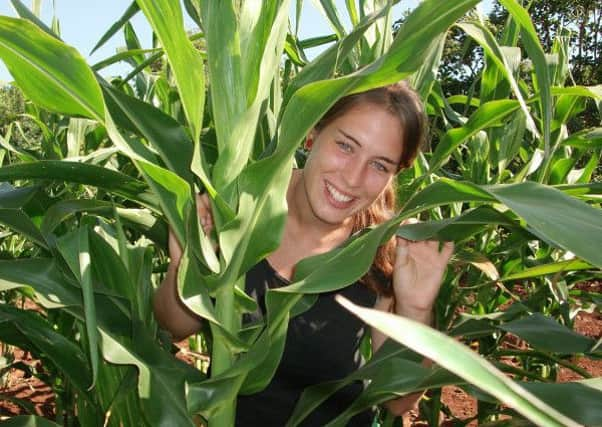Markets help connect people to the land


“I guess we have all seen film images of thriving old-time markets, with produce and animals filling market squares. Lancaster’s market place was no exception…
“Lancaster’s street market dates from 1193, when the borough was first granted a charter - that’s a very long history of people bringing goods to the market square to trade ... And the Old Town Hall, which was built in 1783, now houses the museum.
Advertisement
Hide AdAdvertisement
Hide Ad“In many ways Lancaster’s market would have once been at the very heart of the community - connecting people to each other, to the available food and to the land.
“Apart from catching up on gossip, townsfolk would know first-hand if it had been a bad year for apples or bees or if the grazing was poor.
“The connections between people themselves and the land would have been very strong and alive.
“Today we mostly buy our food in supermarkets. We may speak to no one as we walk the crammed aisles; we often have no idea where the food comes from; we may even seek strawberries in December, having lost touch with the seasonality of our food.
Advertisement
Hide AdAdvertisement
Hide Ad“It’s a soul-less shopping experience and it always gives me a headache. The modern-day supermarket is about as disconnected as possible from real-life with packed goods stacked high, sourced from who knows where and grown by who knows who.
“And little family news or gossip gets shared around the pre-cooked pizza fridge.
“Meanwhile, our street market has shrunk to very few stalls, most of which sell no food at all. And the covered market has been sold to Primark to sell cheap imported clothes. People and land have become disconnected in a big way.
“Lancaster market may be a bit of a squash nowadays if 46,000 of us tried to go shopping there, yet there are many ways to re-connect with our food, the land and each other.
Advertisement
Hide AdAdvertisement
Hide Ad“Friends and neighbours of mine have started making food buying more sociable, having created buying coops where they buy in bulk and then share a big order. The People’s café, and the now regular vegan feast also present other ways of making food more sociable.
“And on Friday June 17th LESS is organising a Midsummer Market which will bring small food producers and wood workers into the town centre to celebrate the summer and the bounty of local produce available in Lancaster District.”
To find out more about the Lancaster’s Midsummer Market visit www.lessuk.org/blog